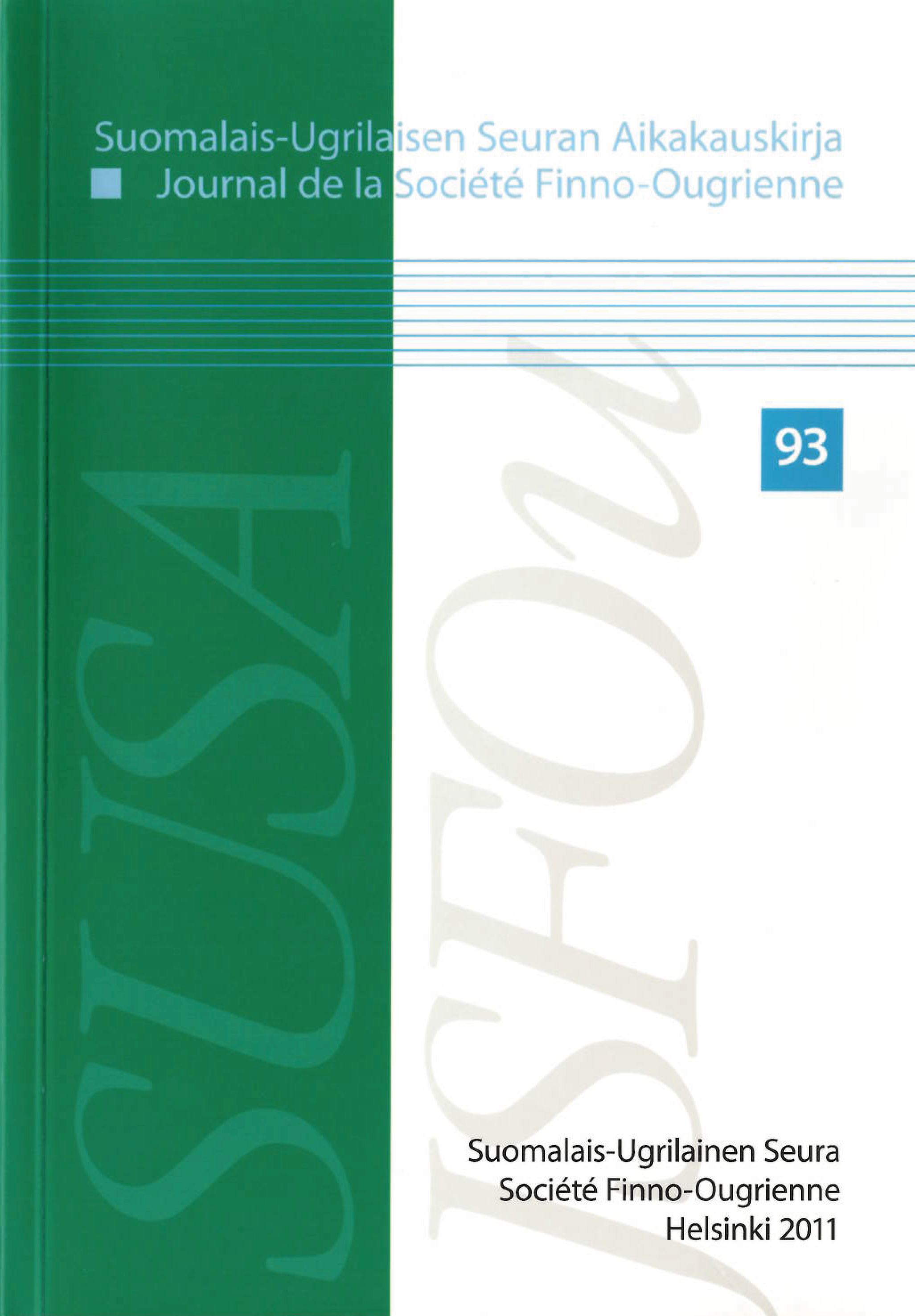Double encoding of nominal and adjectival predicates: A study of the nominative–translative switch in Erzya
DOI:
https://doi.org/10.33340/susa.82503Abstrakti
In Erzya the nominal and adjectival predicates of 'be' copula constructions display double encoding, which takes the form of a nominative-oblique case opposition. The universal tendency is for this opposition to be conditioned by time-stability: encoding in the nominative is used in referring in situations which are relatively stable in time since the oblique encoding - in Erzya the translative - emphasizes the temporary nature of the situation. In some constructions, however, the Erzya translative seems to be in free variation with the nominative. Also clauses referring to stable states, such as identificational statements, may display the translative. Consequently, time-stability is not the only factor constraining the employment of the Erzya translative.





